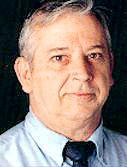The core political argument in our country, from the very beginning, was between federalists and nationalists. The federalists wanted a loose confederation, while the nationalists wanted a strong central government.
The nationalists, of course, won out, but even though they won, I still think they are wrong. A strong central government won’t work for us any more than it worked for the former Soviet Union. Our country is too big and too diverse for one set of federal bureaucrats to govern it successfully.
Ever since the federal government got involved in public education, for example, the system has been growing larger, more expensive and less effective. The reason is that there is no cookie-cutter plan for national education that will work.
The key to education is a teacher and students, but a teacher who is free to use his or her own judgment and subjective skills. In today’s educational bureaucracy, teachers have been virtually stripped of any and all opportunities to make any decisions at all. They are all stuck trying to follow one of these cockamamie plans that roll out of the federal bureaucracy and colleges of education.
Anybody who has ever served in the military knows that centralization creates a rigid bureaucracy, and that’s true in the civilian sectors as well. Bureaucrats, like teachers, are stripped of all initiative and judgment by a flood of rules and regulations. The federal bureaucracy is so bloated that a lot of people really have nothing useful to do, but they show up because the pay is pretty good.
Thomas Jefferson made an important point in arguing for the federalist system of state’s rights. He said apathy could kill a republic, and the only way to avoid apathy is for the voters to be able to see that their votes actually make a difference. The best way to do that is to have the power down at the local level.
Many people have run for local school boards only to discover that they, as elected members, have virtually no discretionary authority to do anything. Every conceivable action is covered by laws and rules and regulations and court orders that either mandate it or forbid it. In recent decades, state governments have taken power away from local governments, and the federal government has taken it away from state governments.
That’s why we often hear that complaint that Jefferson so dreaded: "It doesn’t seem to matter whom I vote for. I get the same government and the same policies."
What that really tells us is that the real power is not in our elected officials but in the private sector, which funds their campaigns and often dictates their policies, at least insofar as their policies impact the private sector’s interests.
I confess, I don’t know how to undo what we’ve done. How do we persuade the federal government to divest itself of some of its power? How do we persuade state governments to leave most of the decisions to local governments? How do we persuade people to pry themselves loose from their TV sets and computers and actually participate in government?
Probably the process will just continue as it is until it implodes. That is what happened in the Soviet Union. Bureaucracy and party decrees got so far removed from reality that everything collapsed. If that happens to us, at least our children or grandchildren will get a chance to start over.
If they do, I hope they follow the model of Jefferson and James Madison and keep the power close to the people at home. That is the only way a true republic can work. The Founding Fathers gave us a good system, and we’ve messed it up.
 Charley Reese has been a journalist for 49 years, reporting on everything from sports to politics. From 1969—71, he worked as a campaign staffer for gubernatorial, senatorial and congressional races in several states. He was an editor, assistant to the publisher, and columnist for the Orlando Sentinel from 1971 to 2001. He now writes a syndicated column which is carried on LewRockwell.com. Reese served two years active duty in the U.S. Army as a tank gunner.
Charley Reese has been a journalist for 49 years, reporting on everything from sports to politics. From 1969—71, he worked as a campaign staffer for gubernatorial, senatorial and congressional races in several states. He was an editor, assistant to the publisher, and columnist for the Orlando Sentinel from 1971 to 2001. He now writes a syndicated column which is carried on LewRockwell.com. Reese served two years active duty in the U.S. Army as a tank gunner.




